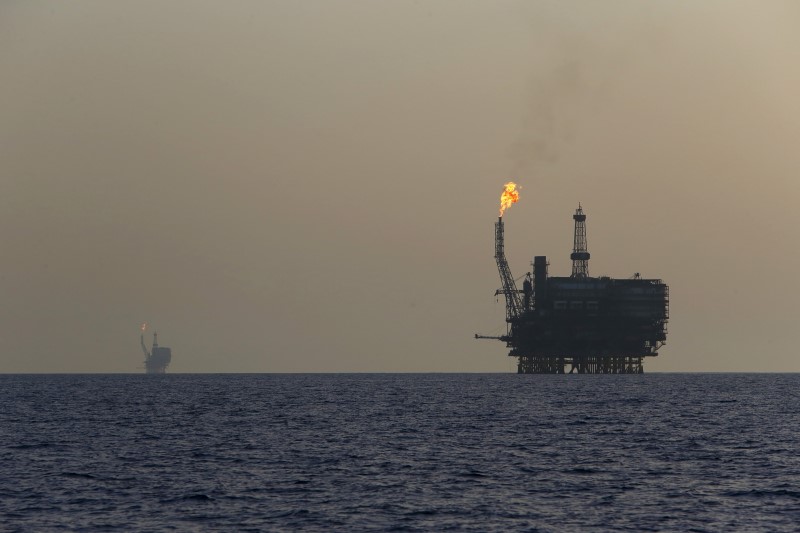By Amanda Cooper
LONDON (Reuters) - Oil prices on Wednesday were on course for a fifth fall in what would be their longest losing streak since February, knocked by mounting concerns about Britain's possible exit from the European Union and a surprise rise in U.S. inventories.
Brent crude futures (LCOc1) fell 70 cents on the day to $49.13 a barrel by 1125 GMT, while U.S. crude prices (CLc1) fell 47 cents to $48.02.
A series of production disruptions in Nigeria, Venezuela, Libya and Canada helped push oil to a 2016 high of $52.86 last week.
Data from the American Petroleum Institute, however, showed U.S. crude inventories rose by 1.2 million barrels in the week to June 10 to 536.7 million, compared with analyst expectations for a decrease of 2.3 million barrels. [API/S]
But the impending vote on the so-called Brexit is dominating everything from currency markets to German Bunds, yields of which fell below zero for the first time on Tuesday after polls showed the "Out" campaign gaining over "In". [MKTS/GLOB]
If Britain votes to leave the EU, investors fear the bloc could slip into a recession that could undermine oil demand.
"In a sense, it is putting some market participants on the sidelines and contributing to the cap on crude oil prices," Petromatrix strategist Olivier Jakob said.
"Are you going to be buying aggressively ahead of that? Maybe not, because you don't know what is going to happen, but there is no evidence of very strong selling on the back of it either," he said.
"For me, crude oil is still stuck between support from the Nigerian disruptions and capped by falling gasoline prices."
Gasoline refining margins on both sides of the Atlantic have fallen since the start of June, as inventories have grown at a time when demand tends to be at its highest for the year.
"The broad picture at the moment is that oil is being swept up in a broad risk off move associated with Brexit primarily," said Ric Spooner, chief market analyst at CMC Markets in Sydney.
Britain's Sun newspaper, long critical of alleged European Union excess, also came out in support of Britain leaving the EU this week.
Robust demand and production disruptions have helped balance the oil market but this equilibrium will again tip into surplus early in 2017, the International Energy Agency (IEA) said on Tuesday.

Goldman Sachs (NYSE:GS) expects the oil price recovery to stall near recent price levels, it said on Wednesday, and forecast that crude would need to sustain a price of $45-$50 per barrel for the market to fall into deficit in the second half of 2016.